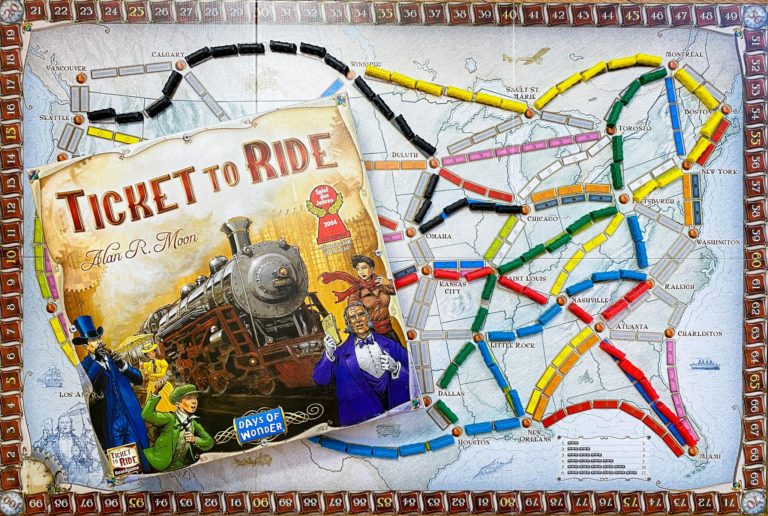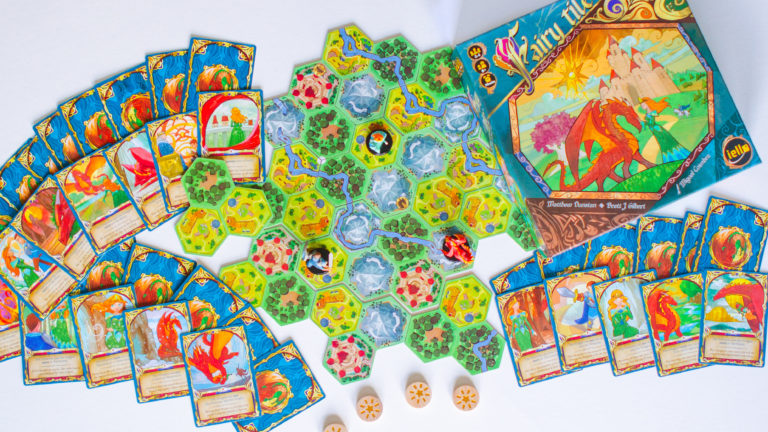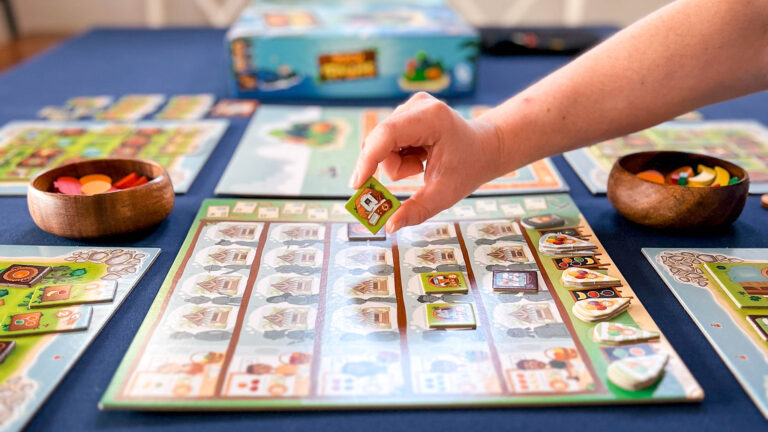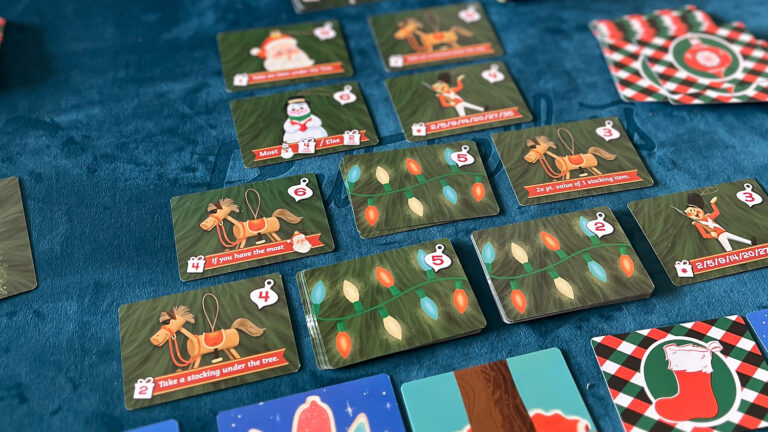Learning to read is a journey, and board games can be powerful tools to help emerging readers. They can take the process of learning to read and help turn it into a fun and exciting experience.
I’m a big believer in finding ways to make learning fun, particularly through play. Reading is one of those skills that comes to each child in their own time and their own way. For some children it clicks early and without much effort, for others that’s not the case. For those that are struggling, it can particularly be a hit to the confidence. Finding ways to incorporate play to both boost their self-esteem and create a dynamic learning environment can be essential to a child’s reading journey.
Consistent, dynamic exposure to reading is the best path towards success. Spend time reading aloud as a family; listen to audiobooks; take your flashcards outside for a change of scenery; and, when it makes sense, play some games!
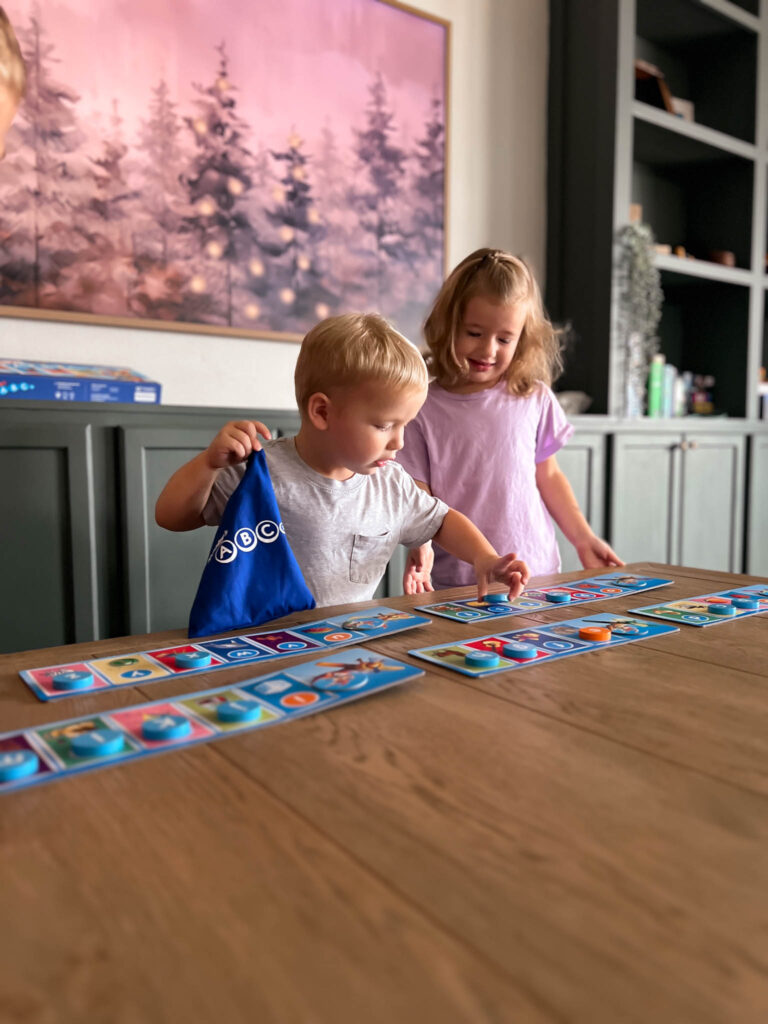
If you want to get right to our board game suggestions for emerging readers, you can skip this next session. But I want to first break down some of the key foundational skills emerging readers are progressing through that are key to their lifelong reading ability and literacy skills.
Foundational Reading Skills
- Phonemic Awareness
Identify and Manipulate individual sounds
Recognize rhyming words, initial, medial, and final sounds - Print Awareness
Understand that words are read left to right and top to bottom - Phonics
Decode words by blending letter sounds together - Alphabet Knowledge
Recognize upper and lower case letters
Know the names and sounds of each letter - Sight Word Recognition
Memorize frequently used words by sight
Develop sight word vocabulary for fluency - Vocabulary
Build a strong vocabulary through exposure to a large variety of words. - Comprehension
Make sense of what is read
Create connections between text and prior knowledge - Fluency
Read with accuracy, speed, and expression
While all board games can provide a benefit, you’ll want to consider these foundational skills and which ones your child might need the most help with when choosing a board game with the intention to provide an engaging learning experience.
Here are some great board games we recommend to help emerging readers boost their reading skills.
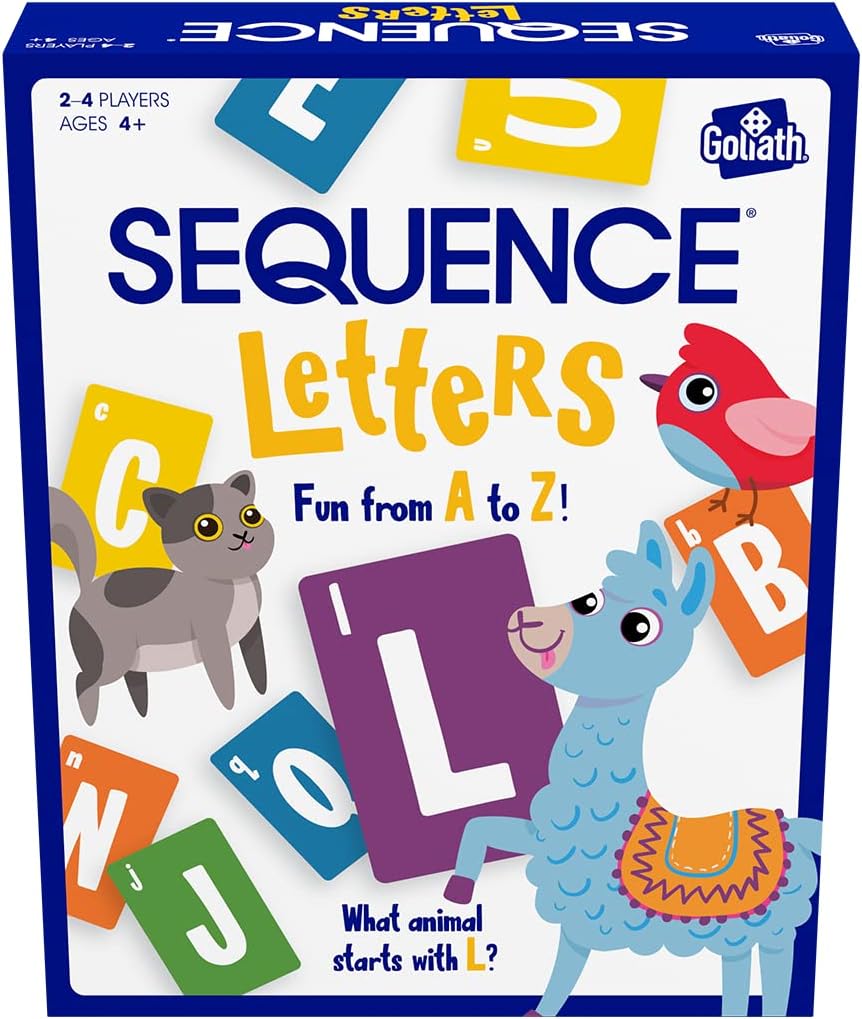
Sequence Letters
Great for younger learners to practice their letter recognition. Encourage students to practice sharing the sound(s) each letter makes during the game.
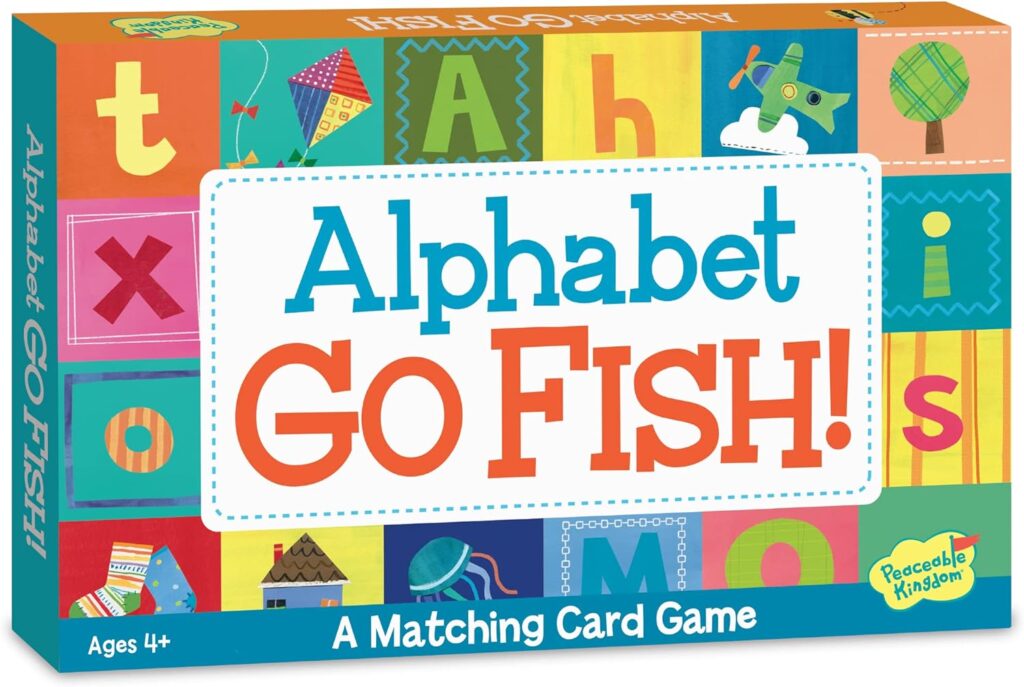
Alphabet Go Fish
We use this in our homeschool all the time. The oversized cards are great for little hands and the clear letters perfect for becoming familiar with letters at a young age.
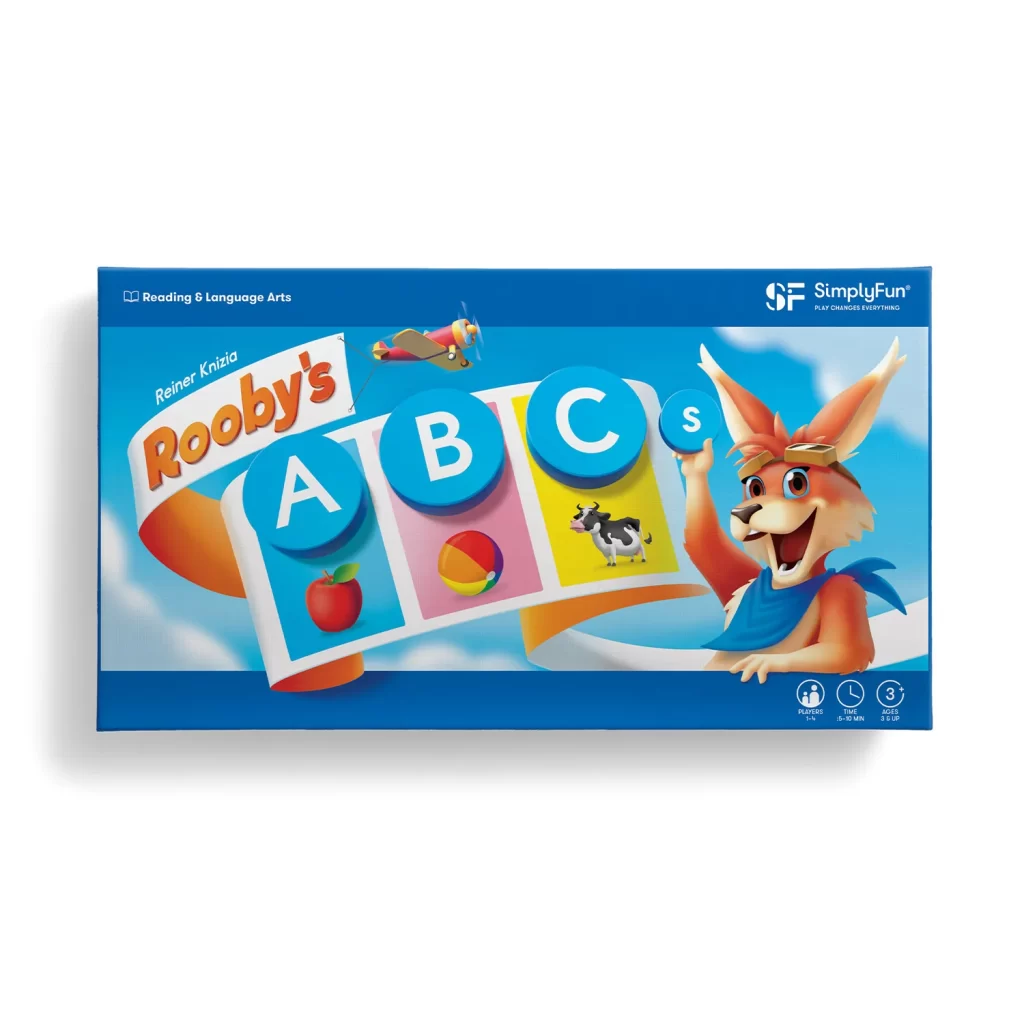
Rooby’s ABCs
So much of early literacy work requires consistent and dynamic exposure to the alphabet. I love Rooby’s ABCs for my younger learners to practice both upper and lowercase recognition. The materials are well made and the game is versatile for multiple types of play.
These classic games are also great for alphabet and spelling practice: My First Bananagrams, Banangrams, Scrabble, Boggle,
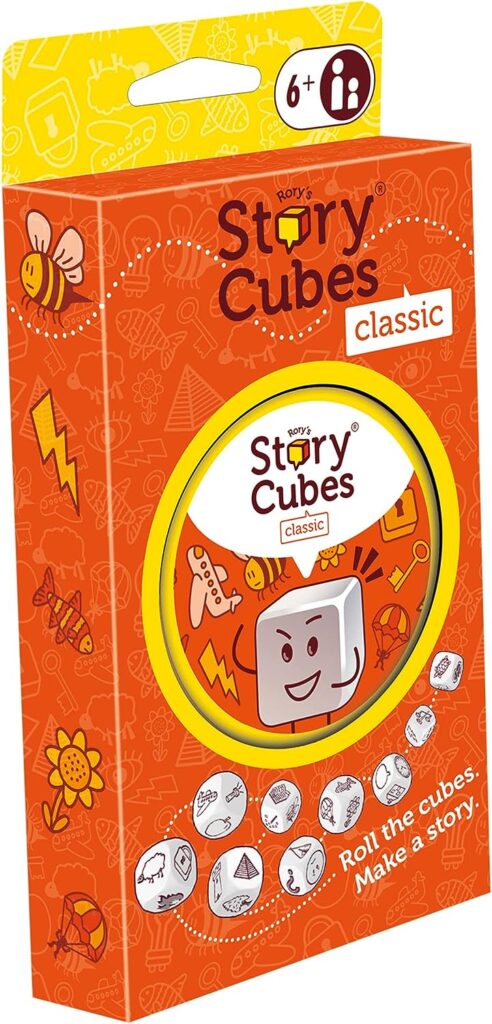
Story Cubes
While there are not actual words or letters in this game, learning to tell stories is a great way to increase vocabulary skills and comprehension. We also use our story cubes for creative writing lessons for our older children. They are incredibly versatile and great for all ages. We have multiple themed sets to create all sorts of stories that interest our kids.
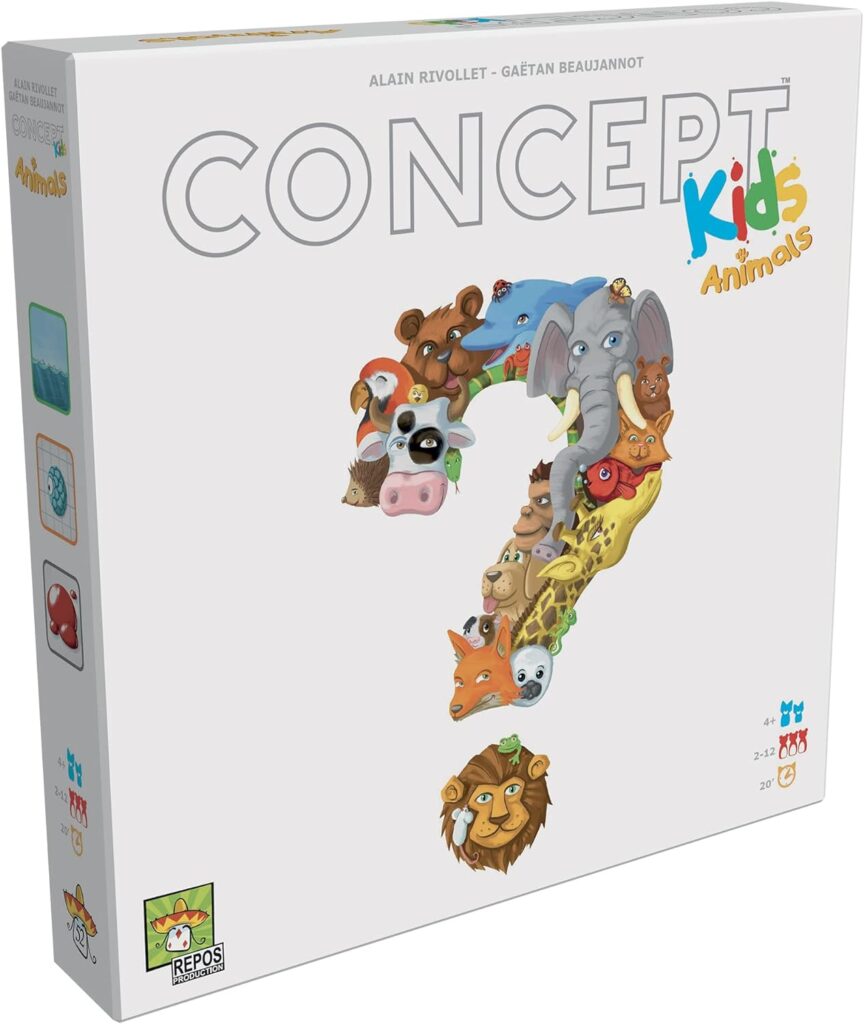
Concept Kids
This game helps kids build associations between animals and the icons on the board. The use of descriptive language, connection building, and vocabulary will help work on multiple key foundational skills. The lack of words will also be well received if you have any kids that are particularly averse to anything that even remotely looks like reading practice.
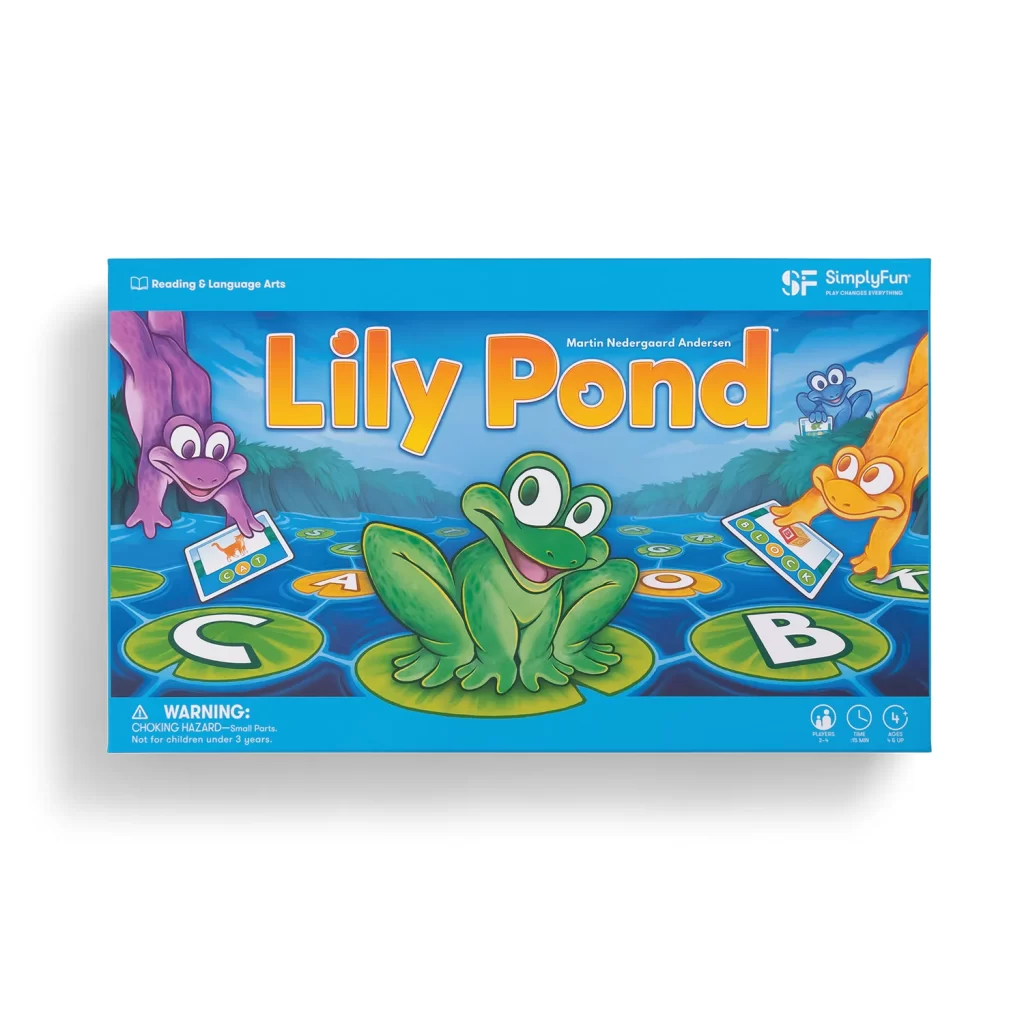
Lily Pond
This game introduces kids to early spelling while engaging their critical thinking skills as they plan ways to get to the letters they need. This is a great game to work on phonetic blending, print awareness, and distinguishing vowels and consonants.
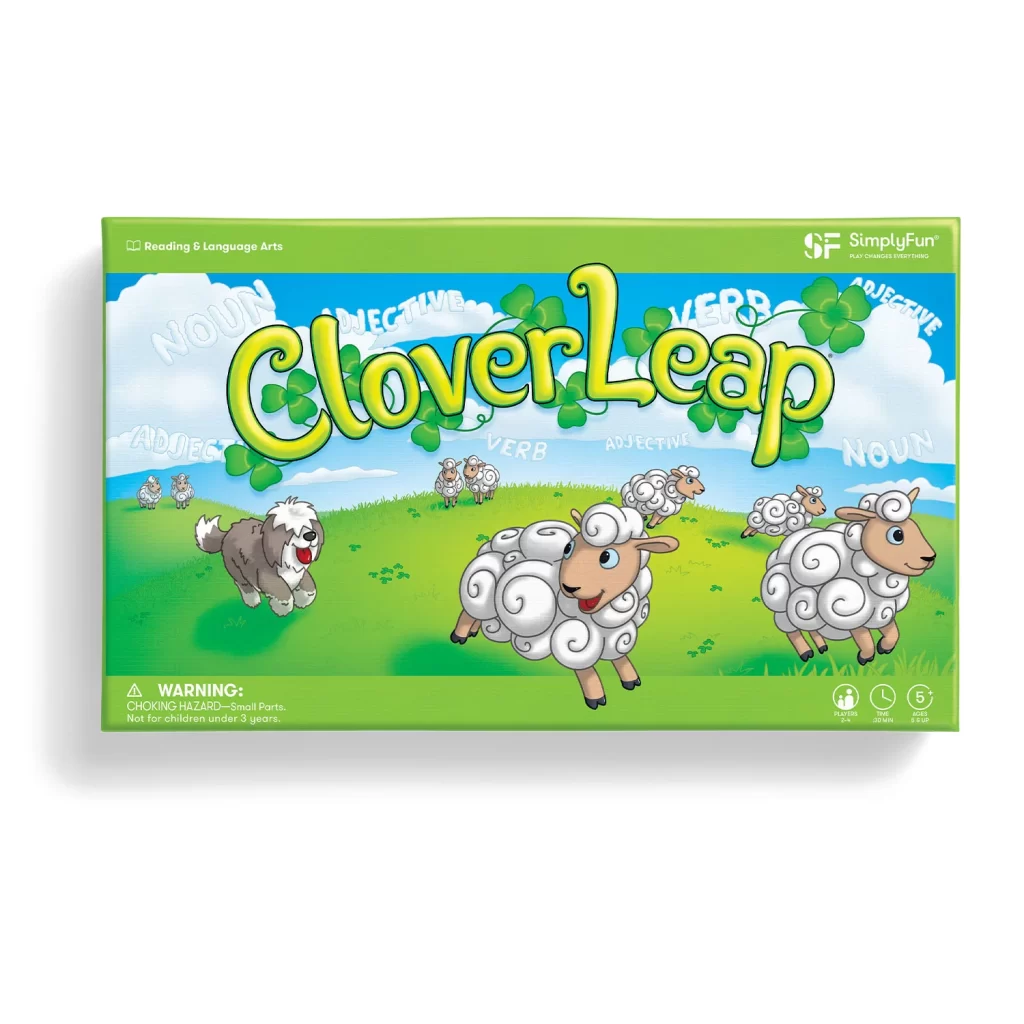
Clover Leap
Clover Leap offers a fun way to learn sentence structure, increased vocabulary, and fluency as you form silly sentences. This game has been an absolute hit for my struggling readers — they love getting the make up the silliest sentences so much that they don’t even realize they’ve been reading and rereading the words on the tiles.
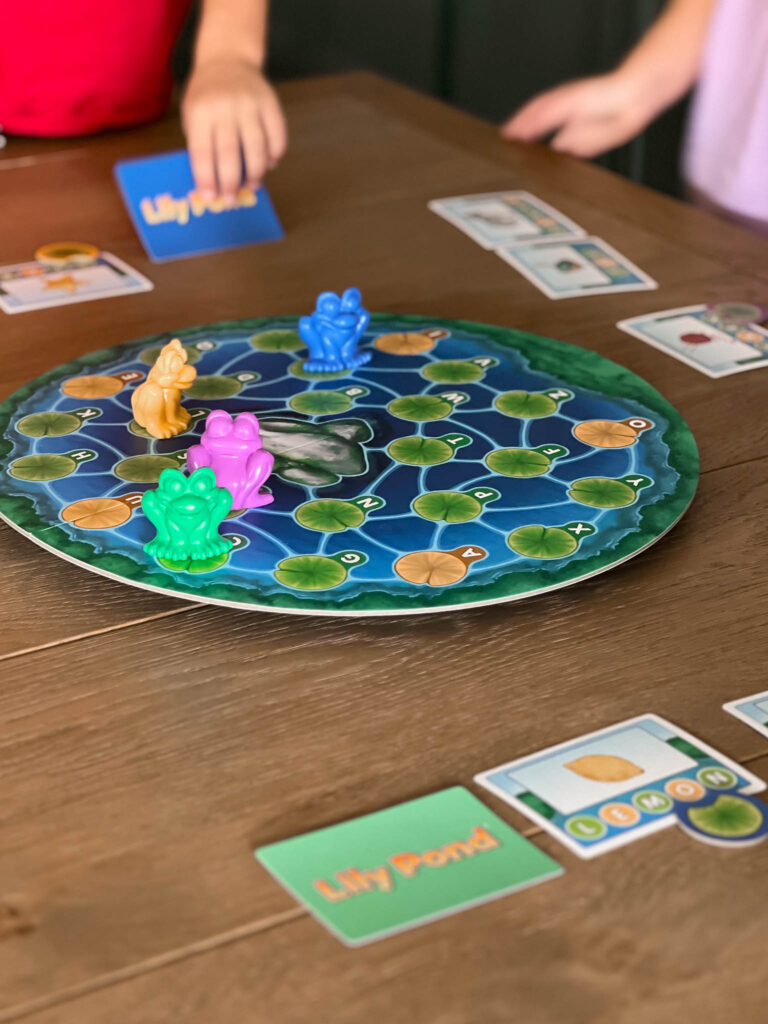
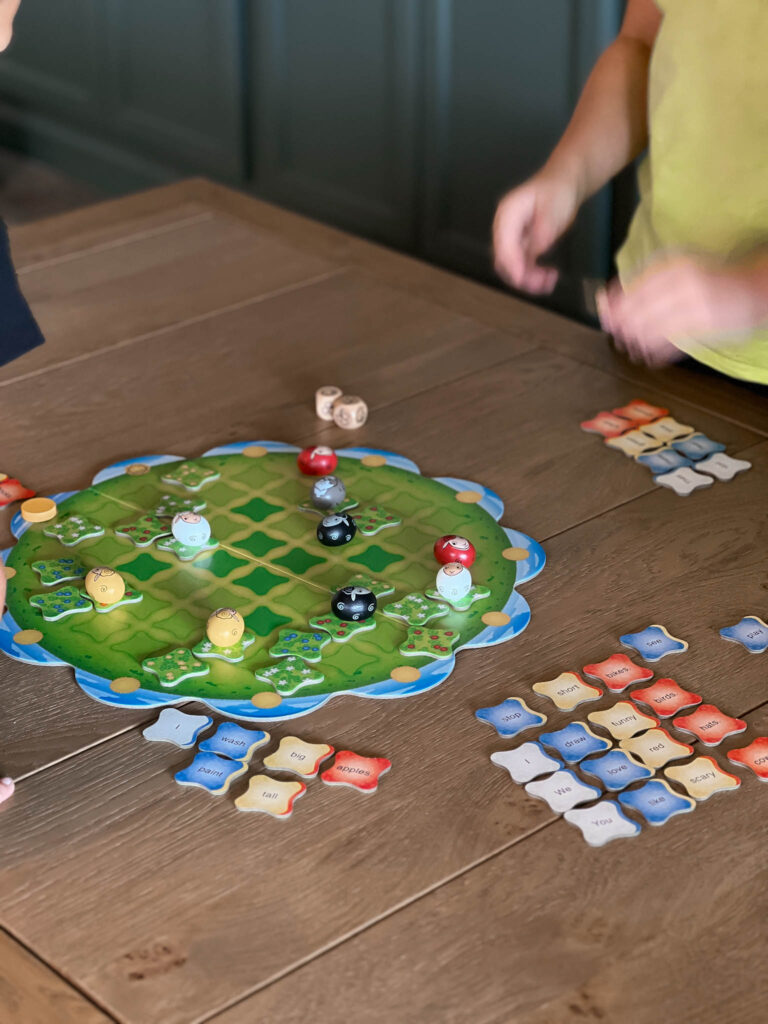
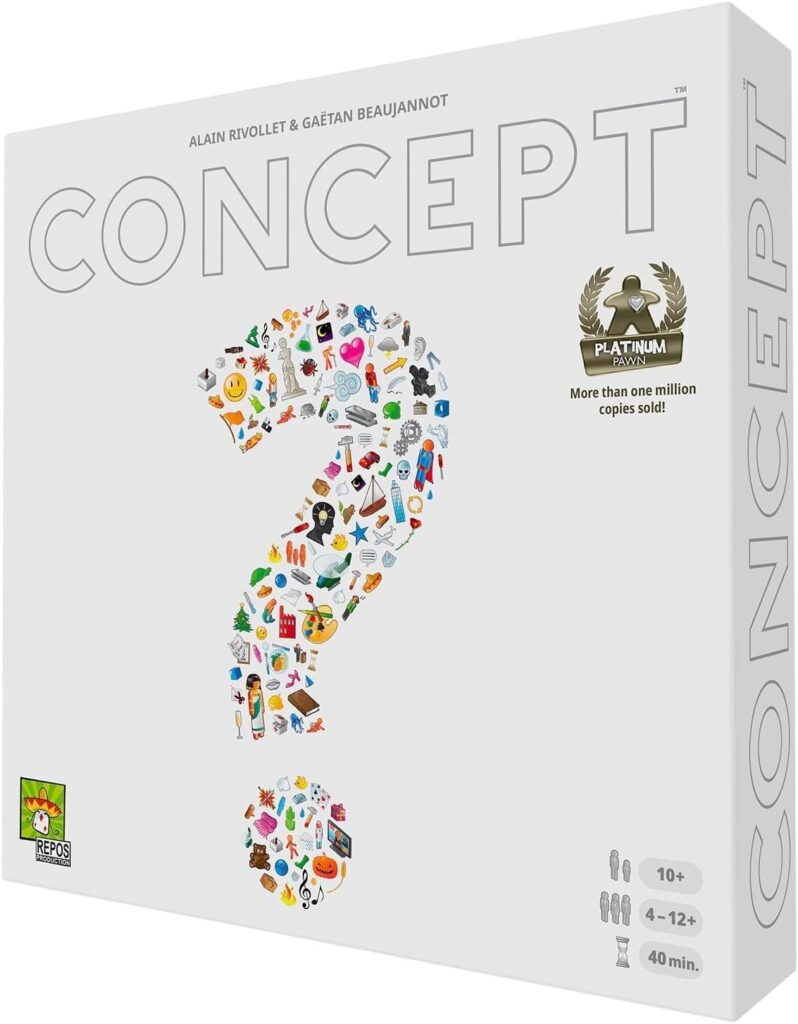
Concept
Just like Concept Kids above, but now for your upper elementary and beyond learners. This game introduces cards with words and phrases on them as well as a more complex icon board that will both challenge and improve reading and comprehension skills.
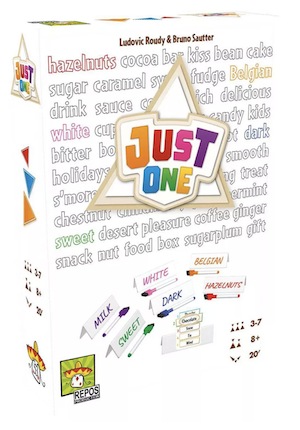
Just One
I love this game for reading practice! Perfect for kids to join in on and without a huge level of fluency required. Some words on the cards might stretch their abilities, but since its cooperative, you can help them decode words as needed and they can practice their spelling and writing when giving clues.
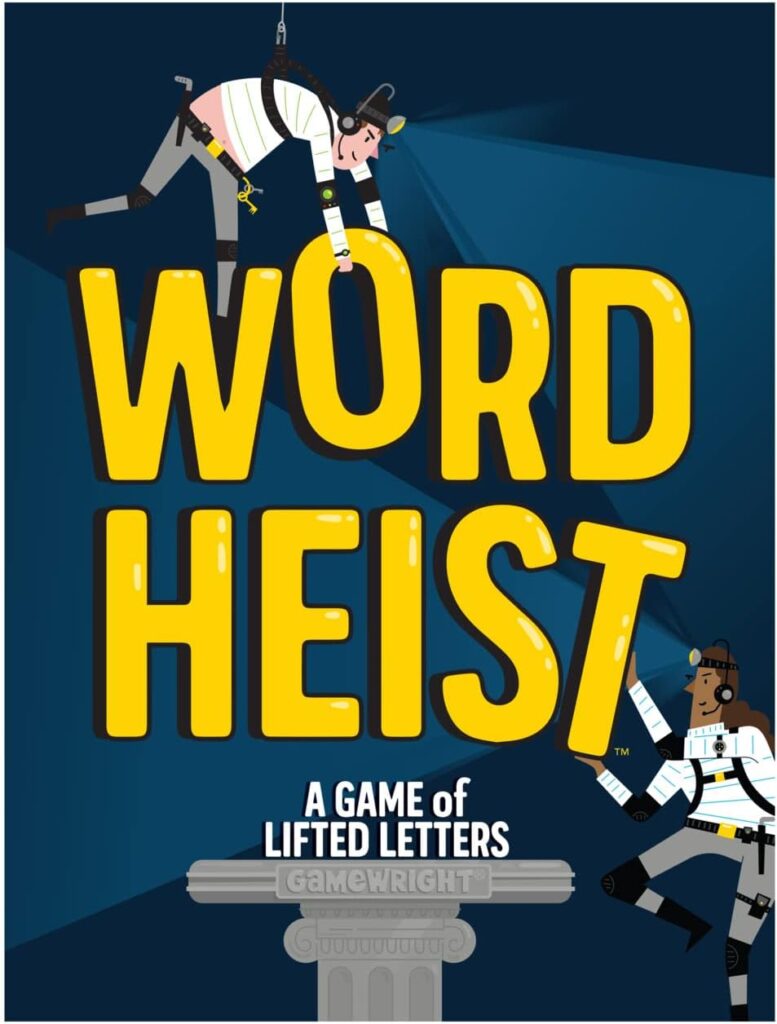
Word Heist
Excellent for spelling practice and dynamic manipulation of limited letters. This will engage their critical thinking and challenge them to use letters and words creatively. It’s also a great option for players who in general love word games.
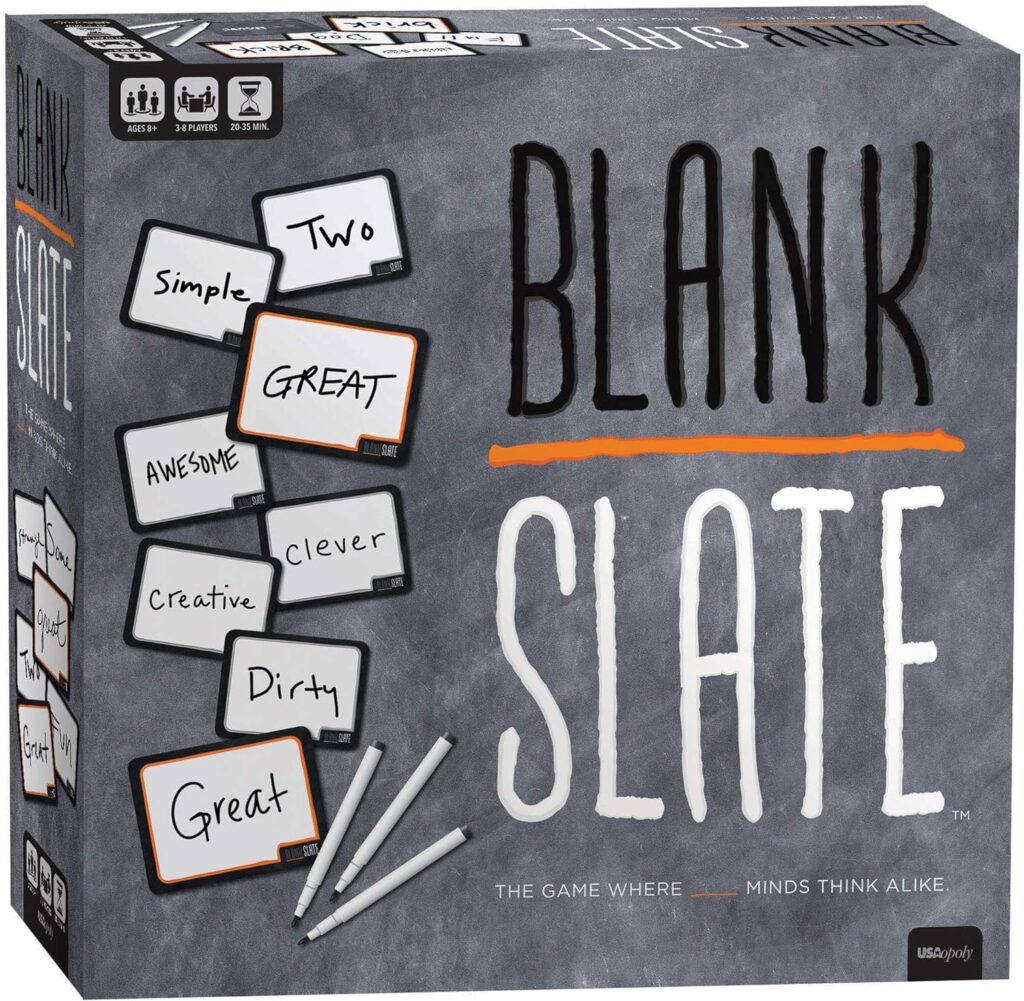
Blank Slate
Practice comprehension, connection building, spelling, and critical thinking! Blank Slate is top tier party game and great for helping emerging readers in upper elementary stretch their skills in a fun and engaging way.
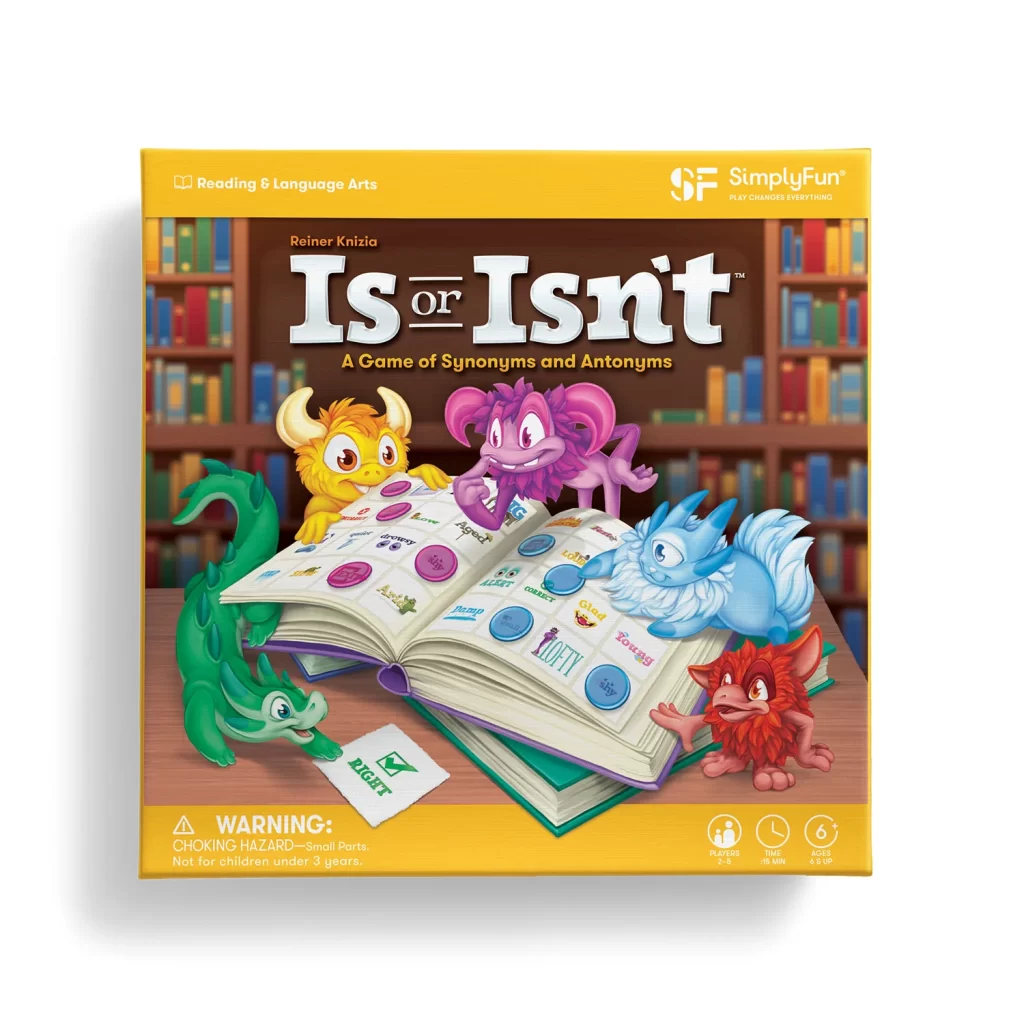
Is or Isn’t
Players will learn synonyms and antonyms in this cute game. Is or Isn’t provides many opportunities for kids to increase their vocabulary and word recognition.
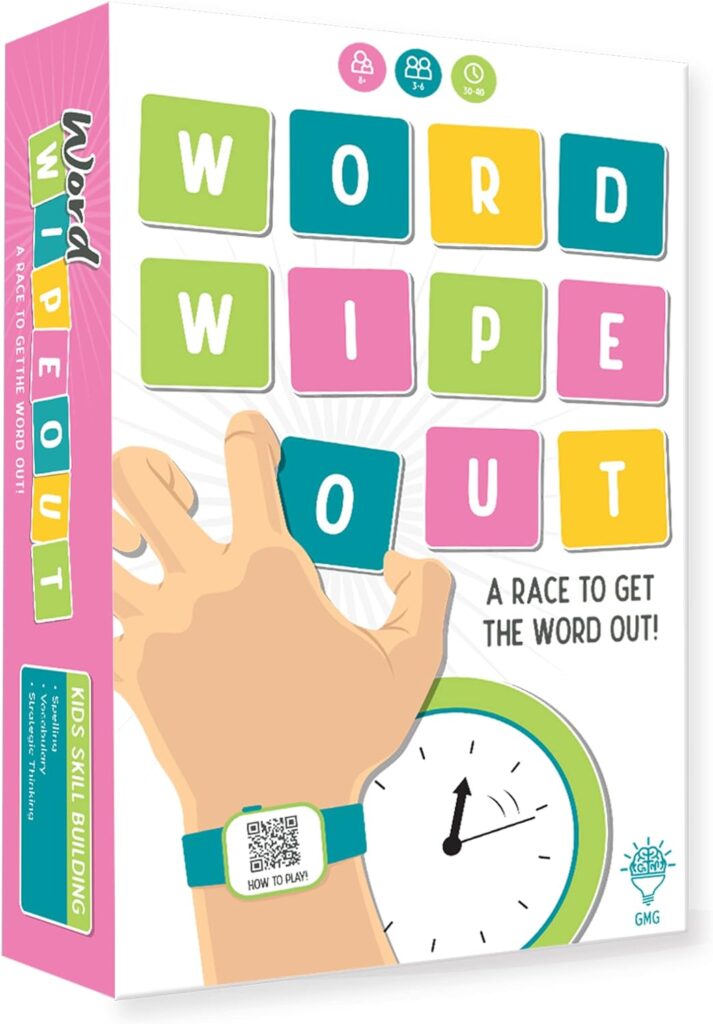
Word Wipeout
Great for spelling. Players will use the letter cards to spell out words that relate to the subject card. The longer the word, the more points you score. Use the timer for those that are ready to spelling under pressure, or play without to allow players a less stressful play environment.
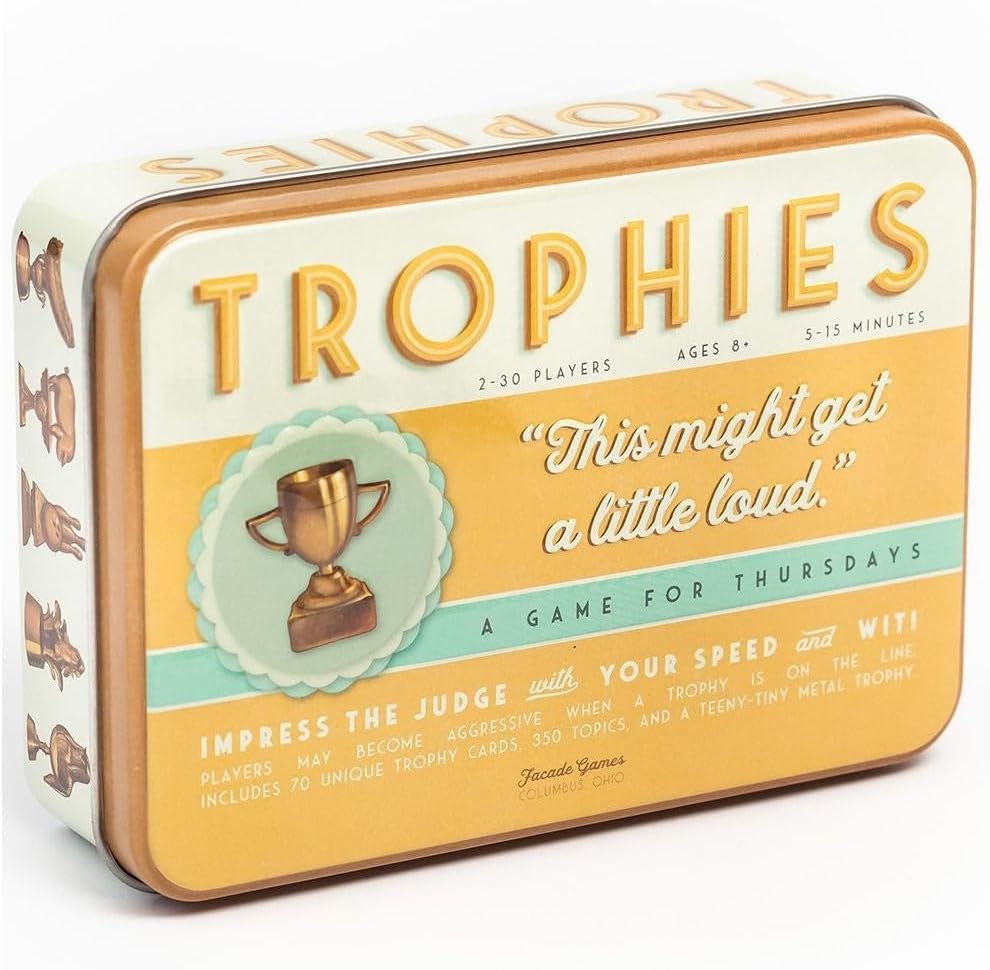
Trophies
A fun party game but also a great way to incorporate phonics and sound blending! Players are given a topic and a letter, they must say words that begin with the letter that relate to the topic. Practice sounds, making connections, and quick thinking.
Narrative & Storytelling Games Board Games for Reading
In Storytelling games, players are often presented with a narrative situation where they will have to make a choice that impacts where the narrative takes them next. These can be great for igniting a love of stories and an interest in exploring books. There are many games in this style, here are a few of our favorites:
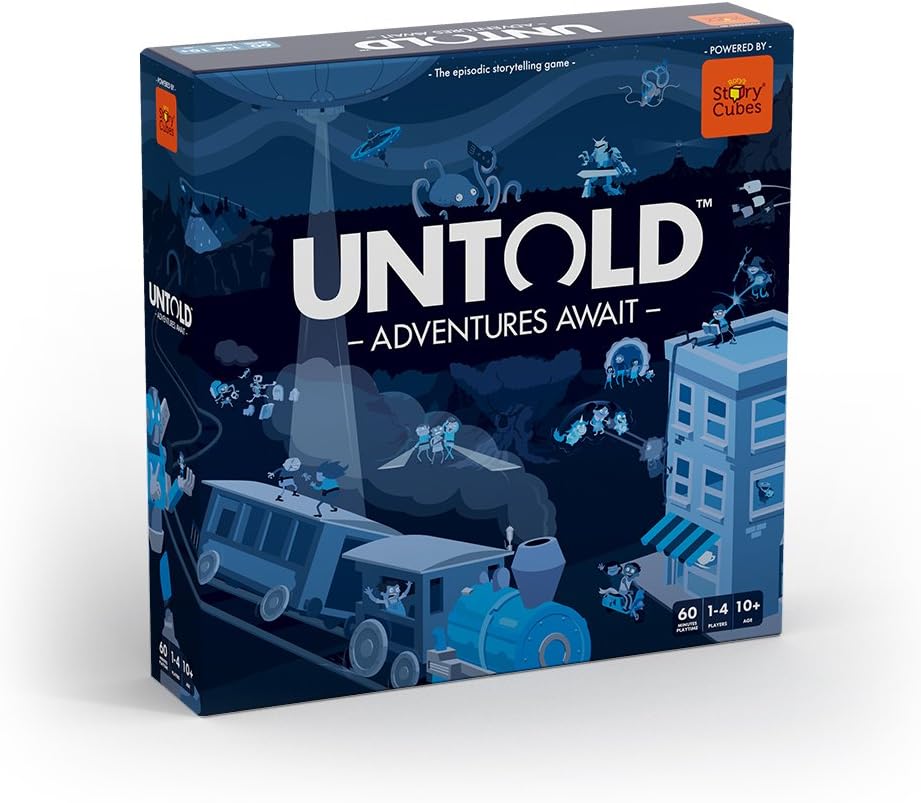
Untold: Adventures Await
This is a customizable storytelling game powered by Rory’s Story Cubes. Players craft their own collaborative story through multiple episodes story arcs, and work on character development. This is a must for older students who are ready to test their creative storytelling in a unique way.
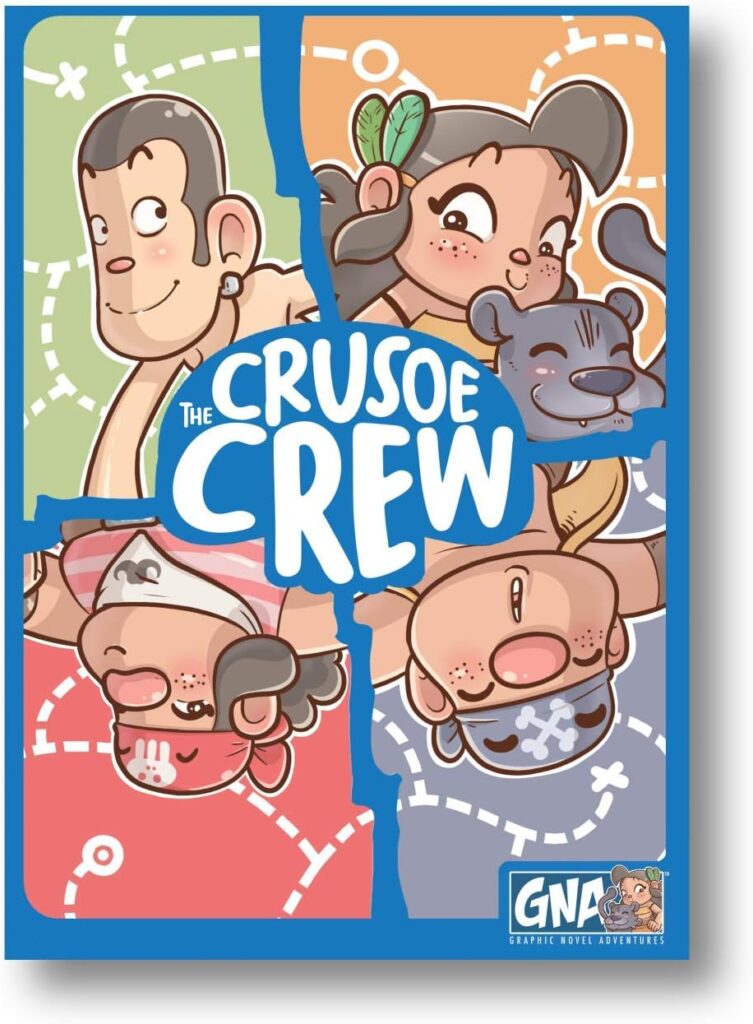
The Crusoe Crew
Combines a comic book style story with a role-playing game. This is a very clever graphic novel adventure where each player has their own book but must work together to make use of each characters abilities and progress through the story. There’s lots of reading throughout and players will read aloud from their graphic novel to the group.
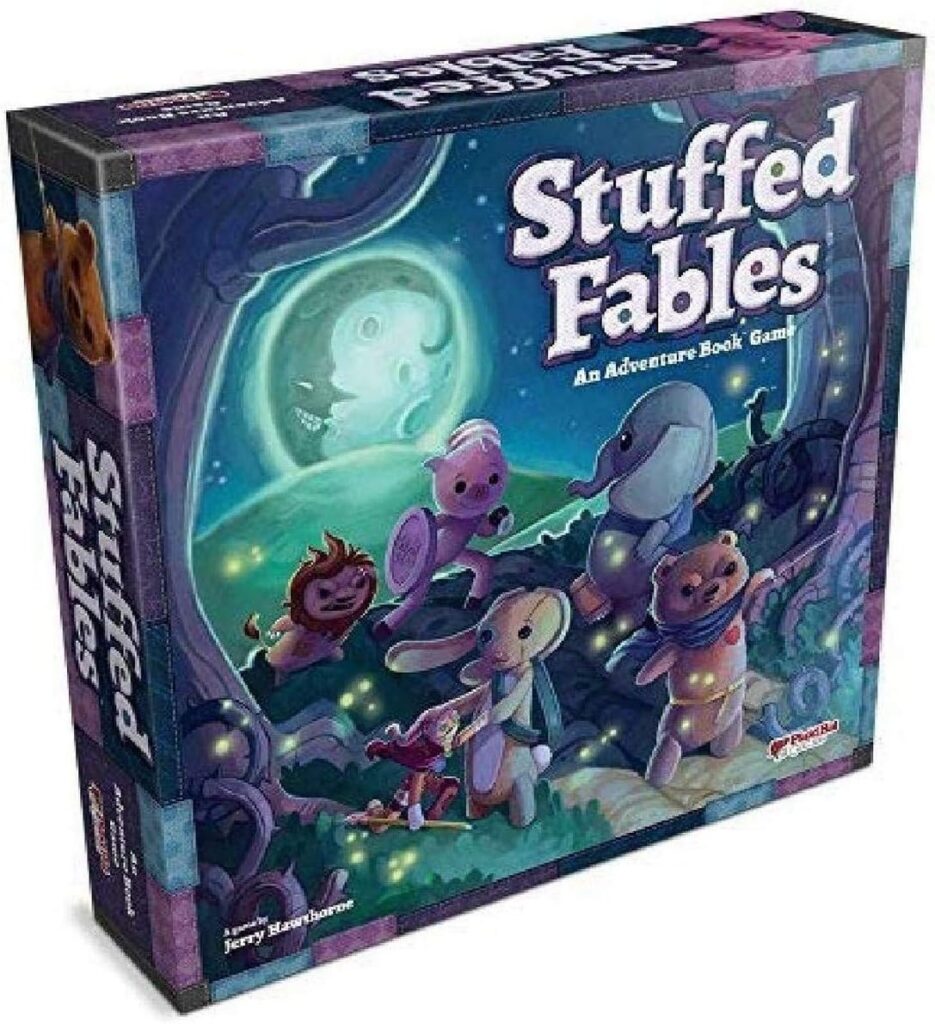
Stuffed Fables
Stuffed Fables offers the fun of a dungeon crawler with an all in one book that guides you through each new step in the story. This is great for comprehension, vocabulary, oral reading practice, and more.
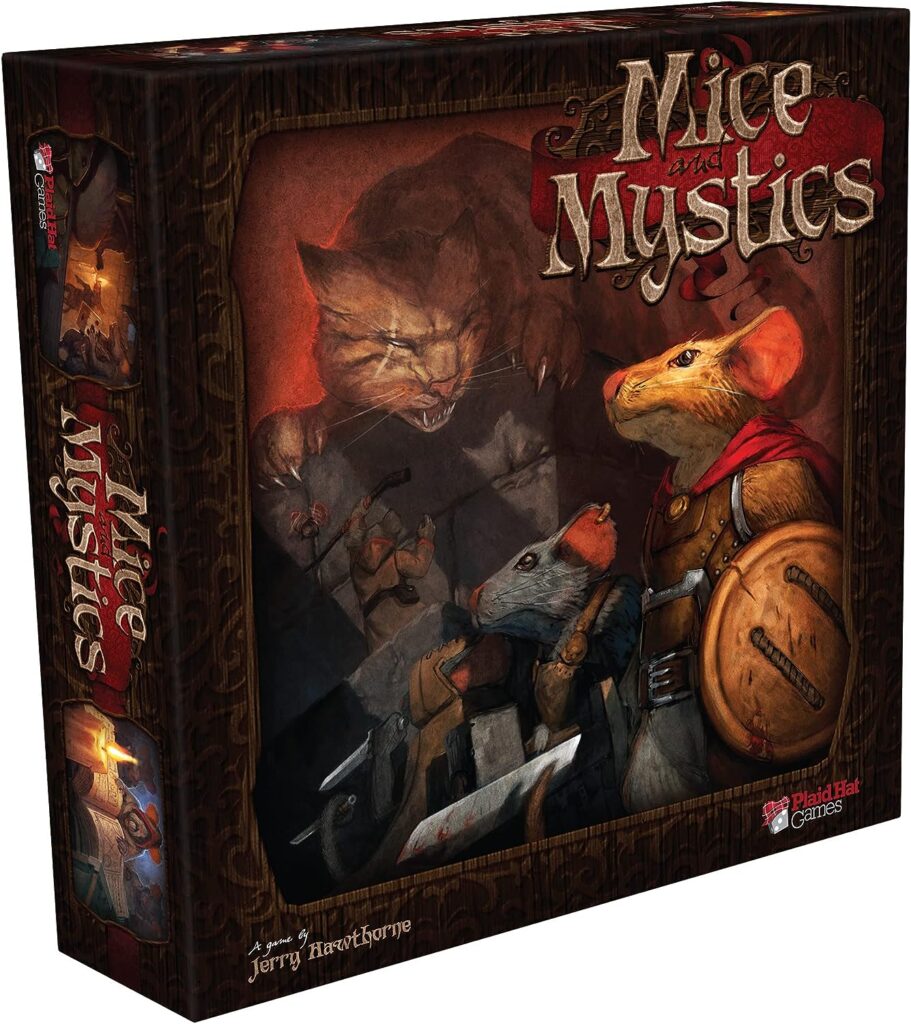
Mice and Mystics
Mice and Mystics is a cooperative dungeon crawler adventure game with an exciting narrative that immerses players into the story. You’ll play as mice racing through a castle to save the kingdom. This is great for comprehension, vocabulary, oral reading practice, and more.
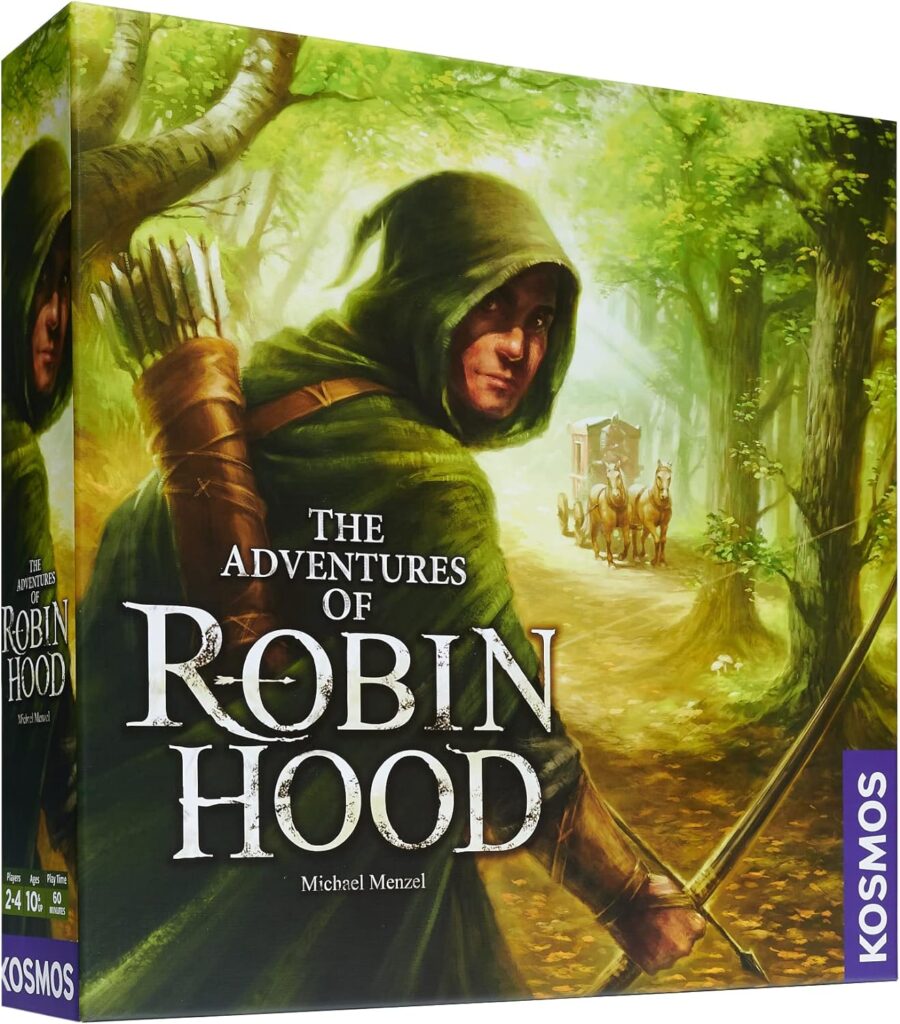
The Adventures of Robin Hood
Players will take on the role of Robin Hood and his companions. The game plays out on a living board which will change throughout each session. This is one of the more perfect blends of immersive storytelling and innovative game play that our family has tried. There is extensive reading required throughout. The game comes with a large hardcover book that tells the story; players can take turns as the narrator for excellent reading practice.
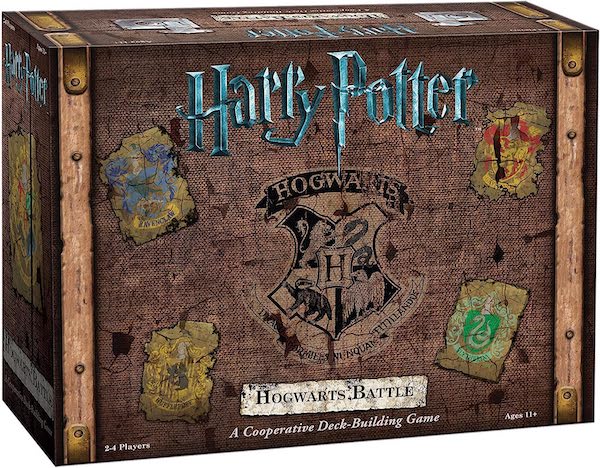
Harry Potter: Hogwarts Battle
This isn’t quite a narrative game like those above, but we think there’s enough reading and comprehension skills required to make it a good fit for readers learning to stretch their skills. We’ve been playing it in tandem with our family read-a-loud journey through all 7 novels and it has provided a great way to retell the story, practice reading through the in-game text, and motivate our children to dive back into the novels.
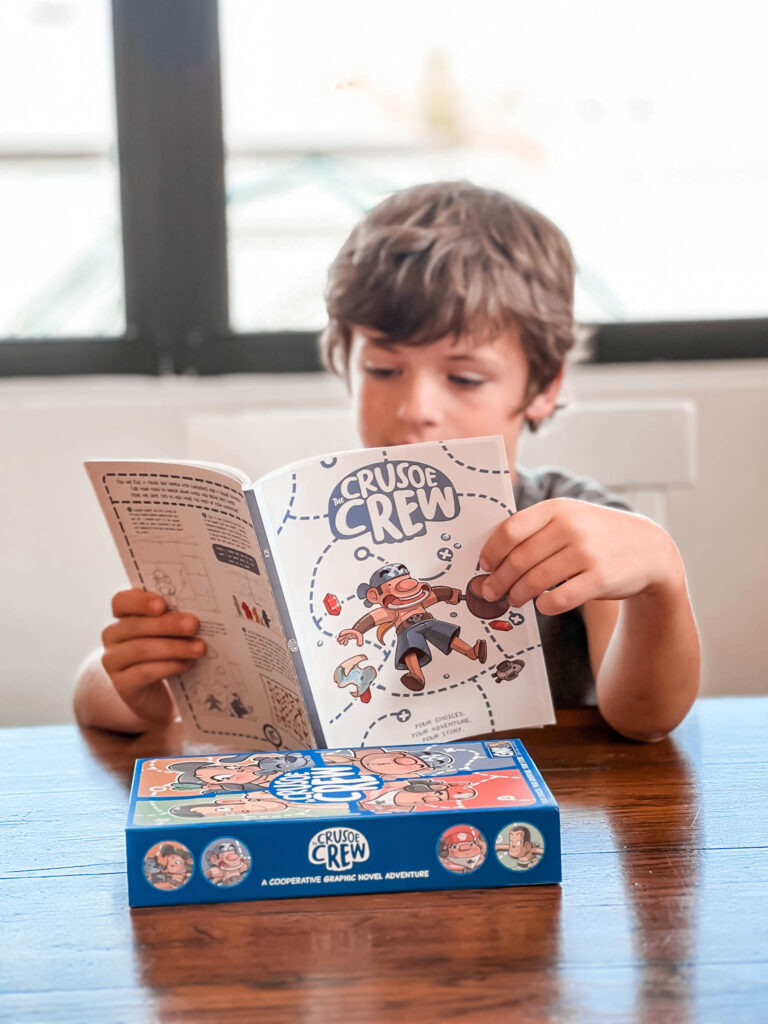
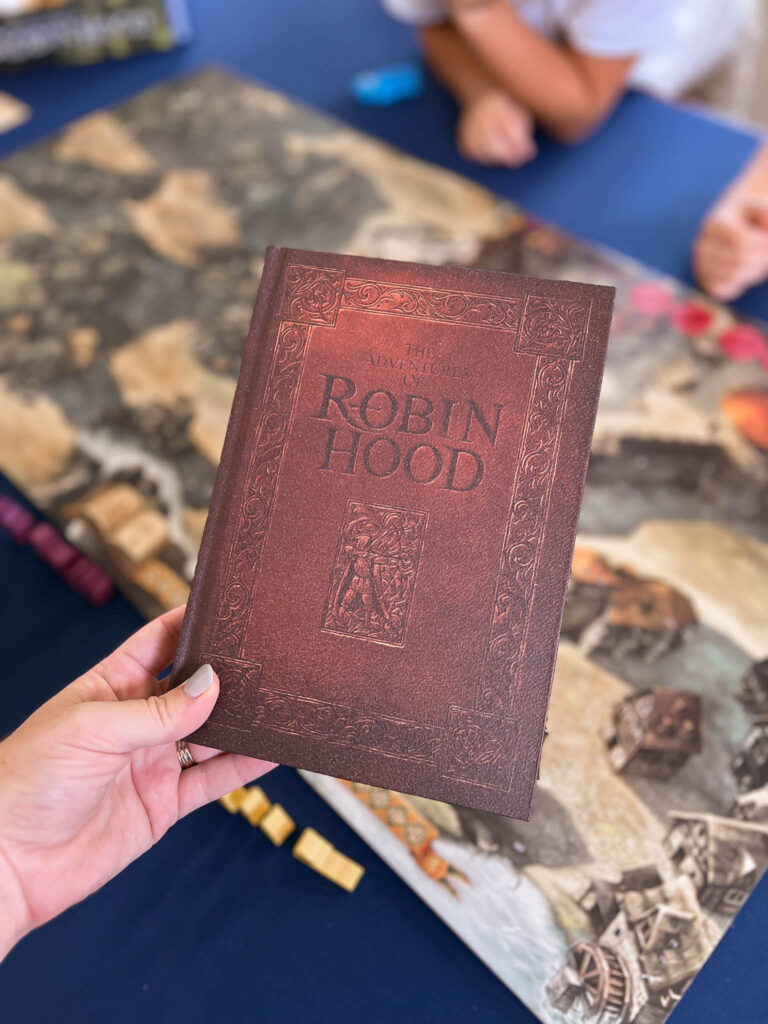
If you enjoyed this post on board games for reading, you may also like
15+ Board Games that Help Teach Math
Educational Games for Summer Break
Board Games for Kids by Age

